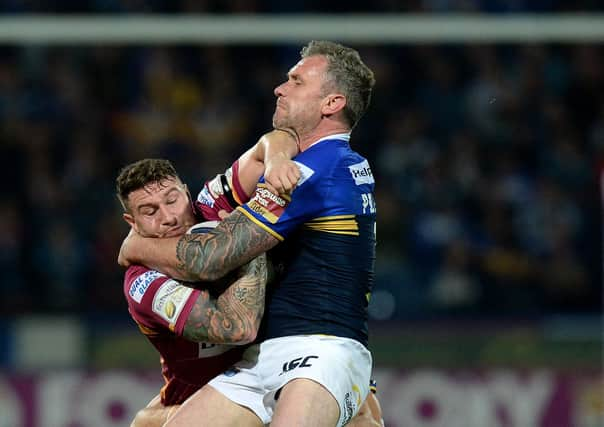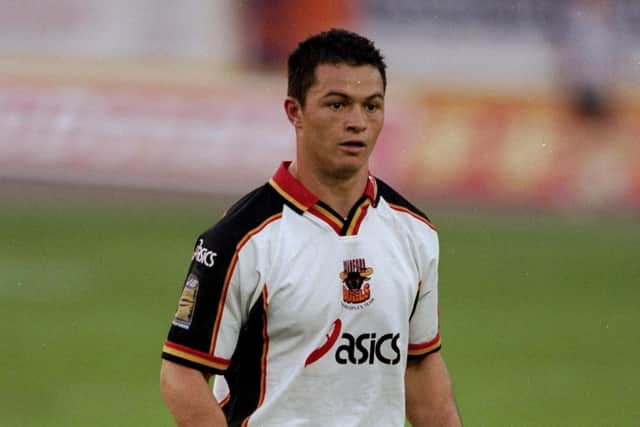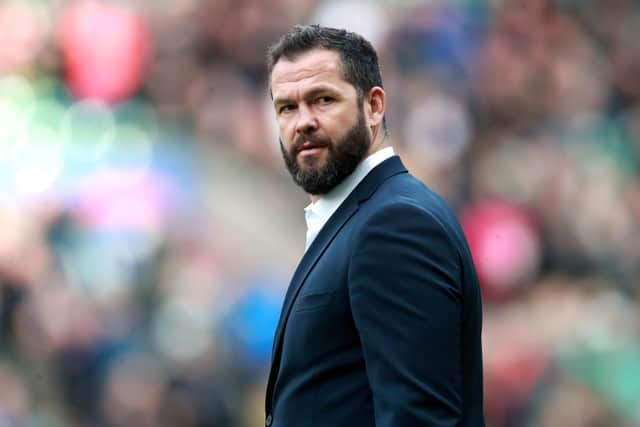Former Bradford Bulls doctor Chris Brookes says it right time for rugby league to return


As the executive medical director of the NHS Northern Care Alliance, he had far more pressing matters to deal with and, he freely admits, they left a deep and significant mark on him, even considering all of his vast experience.
Thankfully, Brookes is in a far better place now and, not only that, believes it is both right and crucial that rugby league is on its way back with games scheduled at the start of next month.
Advertisement
Hide AdAdvertisement
Hide AdSpeaking about his experience, the former Bradford Bulls doctor told The Yorkshire Post: “I’ve had the privilege of working in the NHS for nearly 40 years and have never experienced anything like this (Covid) professionally.


“I never experienced anything like it in rugby league and never thought I would. The way the virus has decimated many communities and the deaths of so many people has been hugely upsetting and I did find it very difficult at first to think about the game as so many people were dying.
“There were 300, 400 people per day dying and I thought ‘why are we even talking about the game restarting?’ Yet, on the other hand, the game has been very good to me. I know it’s helped me immeasurably in terms of getting a balanced proportion. It’s fantastic news Super League’s coming back. It’s really important for everybody’s welfare. The sport supports peoples’ mental wellbeing.
“I know I’m recovering from the strain of leading teams through the pandemic so I do look forward to league restarting.
Advertisement
Hide AdAdvertisement
Hide Ad“I think we have all moved forward now. We need to respect those who have unfortunately succumbed and the fact that the virus is still very prevalent. It’s important, then, we try and move onto normal life but in a way that minimises risk to everybody.”


With that in mind, Brookes –who is also Wigan Warriors’ doctor and the RFL’s chief medical officer – has understandably been at the forefront of plans to safely help restart the sport.
“There are two bits,” he explained, as clubs prepare to return to training and then resume matches on August 2.
“One is the biosecurity of the places the game is being played and, secondly, the biosafety of all of those who are taking part.
Advertisement
Hide AdAdvertisement
Hide Ad“For biosecurity, that’s making sure the venues are safe to maintain as Covid-safe as possible.
“Things like questionnaires to ensure no one is suffering from symptoms of Covid, temperature checking, the security of the testing and within the place itself the criticality of the social distancing and it being maintained.
“Why all of that is important is it’s these measures together that support that biosecurity; if you only had one part – say temperature checking – it’s far less effective than this whole raft of measures that support that biosafety.”
Brookes constantly reiterates how crucial it is for individuals to show “personal responsibility” especially in the period after tests take place – likely to be a Tuesday – and before the weekend’s game.
Advertisement
Hide AdAdvertisement
Hide AdAnd he speaks about travelling on the team bus as one example.
“The importance of maintaining social distancing and protection of others from respiratory droplets is big,” said Brookes, who believes rugby league in this country has to be “especially careful” given the prevalence of Covid-19 in working-class areas in which the sport is so rooted.
“There are outbreaks of coronavirus in things like choirs and wherever there are lots of people talking very loudly, such as meat processing plants. Part of it is thought to be just an environment where coronavirus flourishes but also because it’s very loud; people have to shout a lot.
“You can imagine, then, on a bus someone shouting from one end to the other, which is just part of the camaraderie of rugby league players. They must make sure they wear face coverings to make sure they protect themselves and others from droplets.
Advertisement
Hide AdAdvertisement
Hide Ad“It’s this raft of measures that support the biosecurity of the stadium and then the biosafety of the players and officials.”
Brookes starts his 25th season in the sport next year and worked with Bradford from 2003 – their treble-winning season – until 2007 before moving to Wigan.
He added: “What I’ve learnt about leadership over the years in rugby league – from the many coaches and captains I’ve had the privilege of working with – has helped me enormously in leading teams in the NHS through the most difficult times I could ever have imagined.
“People like Robbie Paul and Jamie Peacock when they led Bradford, and Jamie leading our country as well as Andrew Farrell and any number of coaches, seeing how they sustain morale and support people through bad times, I’ve used all of those skills.”
Comment Guidelines
National World encourages reader discussion on our stories. User feedback, insights and back-and-forth exchanges add a rich layer of context to reporting. Please review our Community Guidelines before commenting.